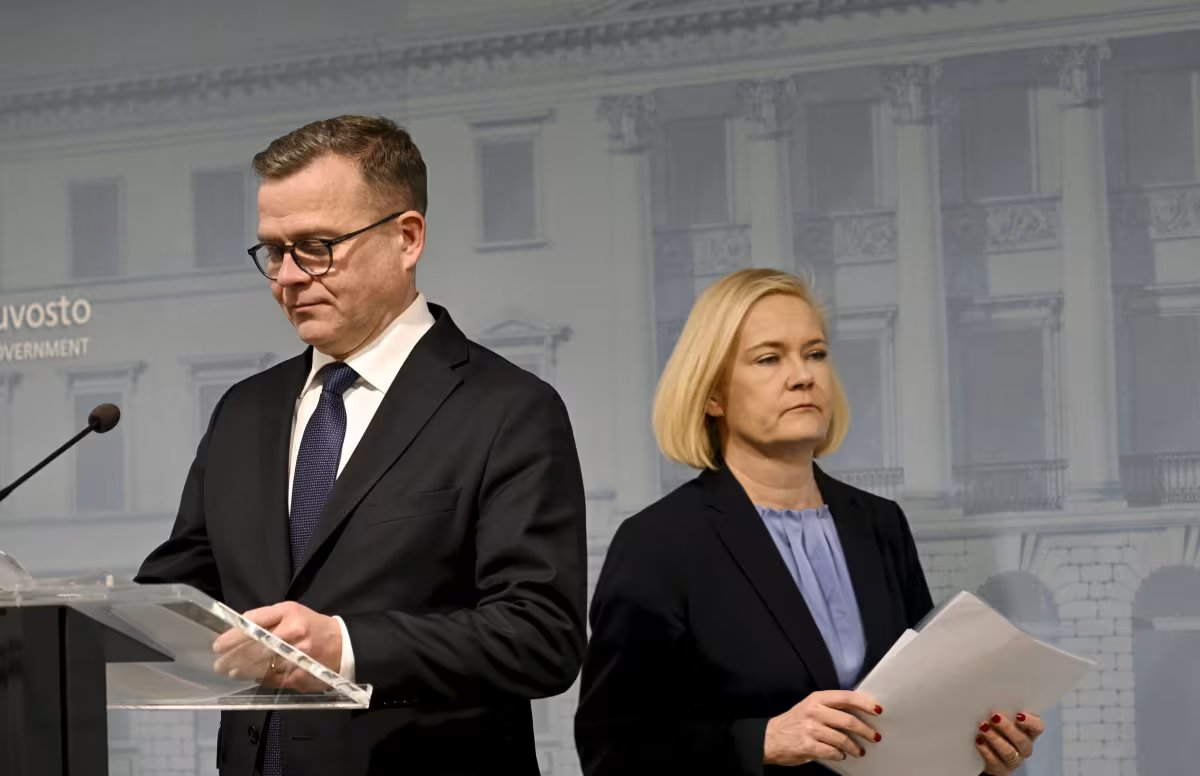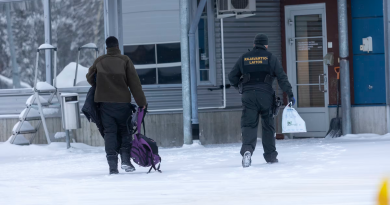Finland: Tougher restrictions needed in case border situation escalates, says Orpo

Prime Minister Petteri Orpo (NCP) and Interior Minister Mari Rantanen (Finns) outlined the government’s proposal for a tougher new border law at a press conference on Friday afternoon.
The government’s Ministerial Committee on Foreign and Security Policy discussed the security situation on the eastern border with President Alexander Stubb earlier on Friday.
The government began circulating its proposal for opinions from experts and relevant agencies on Friday. The law is aimed at combating instrumentalized migration across the Russian border.
The Orpo cabinet wants to increase border authorities’ powers as a precaution in case the number of asylum seekers over the eastern border increases significantly or the frontier situation becomes otherwise more strained.
Possible violation of international treaties
The goal of the government’s proposal is to be able to immediately return asylum seekers to Russia along parts of the eastern border. The law would include exceptions for children, people with disabilities, and individuals in particularly vulnerable situations, for instance, said Sanna Palo, Chief of the Finnish Border Guard’s Legal Division.
She said the decision could be made for a maximum of one month at a time and would only apply to part of the Finnish border at a time.
Still, according to experts interviewed by Yle, this would be difficult to do without violating international agreements, which stipulate that everyone has the right to apply for asylum at a state border, and that applications must be processed.
The three officials speaking at the press conference dodged reporters’ repeated questions as to whether the bill might violate Finland’s constitution or its international treaties. If it does, a supermajority of MPs would be required for its passage, including support from some opposition MPs.
Timetable uncertain
Despite concerns about a possible new surge in arrivals this spring, the timetable for the law’s entry into force remains unclear.
“We must prepare for the fact the situation will get more difficult when spring arrives,” said Orpo.
There is still no consensus within the government on the motion, as the Swedish People’s Party has not yet approved the wording to be sent to Parliament.
The junior coalition partner has said it will await responses from the bill’s comment round before deciding if the text should be reformulated before submission to Parliament.
Yle’s parliamentary correspondent noted that it is unlikely that such an exceptional bill could be processed before the legislature’s summer break begins in June. In the past, the Constitutional Law Committee has sometimes rejected government bills it deems to be unconstitutional.
Due to concerns over instrumentalized migration orchestrated by Russia, Finland’s eastern border has been mostly closed to passenger traffic since last autumn, and will remain shut until at least 14 April.
Related stories from around the North:
Canada: U.S. report claims Trudeau told NATO Canada will never meet military spending target, CBC News
Denmark: Danish policy prioritizes low-conflict Arctic amidst Russian tensions, Eye on the Arctic
Finland: NATO membership strengthens Arctic Security, deepens Canada ties: Finnish Ambassador, Eye on the Arctic
Iceland: Iceland authorizes U.S. submarine service visits, Eye on the Arctic
Norway: Russian jamming disrupting GPS signals for Norwegian aviation almost daily, The Independent Barents Observer
Russia: As NATO forces move north for exercise, Northern Fleet sails out frigates, The Independent Barents Observer
Sweden: Swedish forces exercise in northern Norway as country officially joins NATO, Reuters
United States: U.S. nominates Alaskan as first Arctic ambassador, Eye on the Arctic



